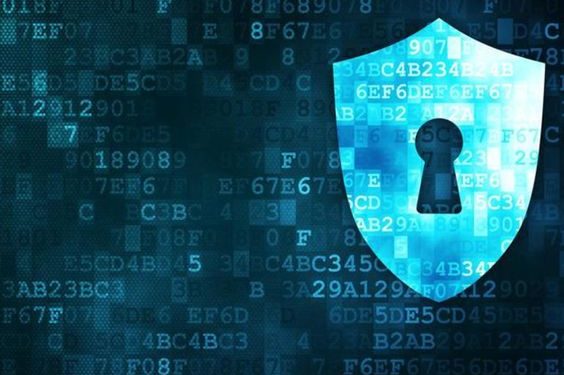In today’s digital age, personal data has become one of the most valuable assets. From social media accounts to online banking information, we store a vast amount of sensitive information on the internet. Unfortunately, cybercriminals are always lurking around trying to get their hands on your private data for malicious purposes. Therefore, it is essential to take proactive steps to keep your personal information safe and secure while browsing the web. In this blog post, we will share five practical ways that you can use to safeguard your personal data online effectively!
Use a Password Manager
Using a password manager is one of the most effective ways to keep your personal data safe online. Password managers are tools that help you create and store unique, complex passwords for every website or application you use. They also provide additional security features such as two-factor authentication and auto-locking.
With a password manager, you only need to remember one master password that unlocks access to all your other passwords. This eliminates the need to memorize multiple passwords or write them down on sticky notes which can be easily lost or stolen.
Furthermore, many password managers offer browser extensions that automatically fill in login credentials for websites you visit regularly. This saves time and makes it less likely for you to fall into phishing scams by entering your details onto fake sites.
Using a password manager provides an easy yet highly secure way of managing your online credentials while protecting yourself from potential cyber threats.
Create Strong Passwords
Creating strong passwords is crucial in keeping your personal data safe online. It’s not enough to use common phrases or easily guessable words as your password. Hackers can easily crack weak passwords and gain access to all your sensitive information.
To create a strong password, make sure it’s at least 12 characters long with a combination of upper and lowercase letters, numbers, and special characters. Avoid using personal information like names, birthdays or addresses as part of your password.
Another tip is to avoid using the same password for multiple accounts. This may seem convenient but if one account gets hacked, all others become vulnerable too. Instead, use unique passwords for each account.
To help you remember all these complex passwords without having to write them down on paper which can be lost or stolen; consider using a reputable password manager app that generates random secure passwords for you while remembering them securely across devices.
By creating strong and unique passwords you are adding an extra level of security against potential hackers who want nothing more than gaining unauthorized access to steal valuable private information from their targets online – so take time today and update those old weak ones!
Don’t Reuse Passwords
One of the biggest mistakes people make when it comes to online security is reusing passwords. It may seem like a convenient way to keep track of all your accounts, but it’s also making yourself an easy target for hackers.
When you reuse passwords, all it takes is one compromised account for a hacker to gain access to multiple sites and services that you use. This means that not only is your personal information vulnerable, but so are any financial or social media accounts that share the same password.
To avoid falling victim to this common mistake, make sure each account has its own unique password. A good tip is to use a combination of uppercase and lowercase letters along with numbers and symbols.
Another helpful trick is using passphrases instead of single words or phrases as they can be easier for you remember while still being complex enough for added security. For example, “Ilove2Walkthedog!” could be used as a passphrase instead of just using “doglover” as your password.
Consider using a reputable password manager program which generates strong random passwords and stores them securely in an encrypted database on your behalf. By doing this simple thing alone will save time from manually typing long strings into the login forms every time you visit websites or apps requiring authentication.
Reusing passwords leaves us open to potential cyber-attacks so take some steps today by updating those old weak ones!
Enable Two-Factor Authentication
One of the most effective ways to keep your personal data safe online is by enabling two-factor authentication (2FA). This security feature adds an extra layer of protection to your accounts, making it more difficult for hackers to access them. So, how does 2FA work?
Basically, when you enable 2FA on an account, you’ll need to provide two pieces of information in order to log in: your password and a verification code. The verification code is usually sent via text message or through a designated app like Google Authenticator.
Enabling this feature may seem tedious at first since it requires an additional step in the login process. However, the added security benefits are well worth it. Without these codes, even if someone has stolen or guessed your password correctly they won’t be able to access your account without this second piece of information.
Many popular websites and apps offer 2FA as an option for users so take advantage of this added layer of security!
Be Careful What You Click
One of the easiest ways for hackers and scammers to gain access to your personal data is through phishing scams. These are malicious emails or links that trick you into clicking on them, giving the attacker access to all your information. To avoid falling prey to these scams, it’s important to always be careful what you click.
Before clicking any link, make sure you know exactly where it leads by hovering over it with your mouse. If the URL looks suspicious or doesn’t match the website you thought you were visiting, don’t click on it.
Be wary of emails or messages from unknown senders asking for personal information or urgent action. Always double-check the sender’s email address and verify its legitimacy before responding.
Scammers often use fake login pages that look identical to real ones in order to steal your login credentials. Be cautious when entering sensitive information online and only do so on trusted websites with secure connections (look for “https” in the URL).
If something feels off about a link or message, trust your gut instinct and err on the side of caution by not clicking on anything until you can verify its authenticity. By being vigilant about what we click online, we can better protect ourselves from cyber threats.
Keep Your Software Up to Date
Keeping your software up to date is crucial for protecting your personal data online. Outdated software can have vulnerabilities that hackers can exploit, leaving you open to potential cyber attacks. That’s why it’s important to always update your operating system, web browser, and other applications regularly.
Updating your software not only ensures that you have the latest security patches installed but also provides new features and improvements in performance. Most modern devices come with automatic updates enabled by default, so all you need to do is make sure they are actually installing.
However, sometimes updates may require a restart or take longer than expected to complete. It might be tempting to postpone them until later when it’s more convenient but doing so puts your device at risk of being compromised by attackers who are looking for vulnerabilities.
In addition to updating individual applications on your computer or mobile device, it’s essential also ensuring any plugins and extensions used are updated as well. These third-party tools integrate with various browsers and offer additional functionality but like other apps they too run into bugs that require fixes from time-to-time.
Keeping all software on all devices up-to-date will provide peace of mind knowing everything possible has been done within reason regarding security measures against cyber threats such as malware infections or identity theft attempts through phishing scams etc..
Use a VPN
Using a VPN (Virtual Private Network) is another effective way to keep your personal data safe online. A VPN creates a secure and encrypted connection between your device and the internet, making it difficult for anyone to intercept or access your data.
When you use a VPN, it masks your IP address, which means that no one can track your online activities or location. This is particularly important if you’re using public Wi-Fi networks which are known to be vulnerable to cyber attacks.
In addition, some VPNs come with additional security features such as malware protection and ad-blocking software, further enhancing the security of your online presence.
There’s no denying that our personal data is valuable and should be protected at all costs. By implementing these simple yet effective strategies – using a password manager, creating strong passwords, enabling two-factor authentication, being vigilant about what you click on and keeping your software up-to-date – along with using a VPN when browsing the web – we can safeguard our information from prying eyes. By taking these steps now in today’s digital age where cyber threats abound more than ever before – we can ensure peace of mind while staying connected online!
















